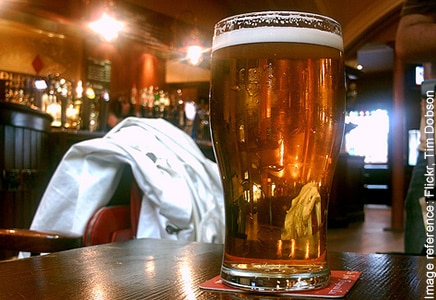
Beer-making is a centuries old practice, yet modern ingenuity might be able to improve upon the ancient tradition. When Electrolux Professional and Carlsberg Italy decided to cooperate on innovating a new way of dispensing beer in aluminum kegs, their shared goal was to dramatically cut the carbon footprint from distribution yet still make an appealing beer.
Tight squeeze
Aluminum kegs dispense beer through applying CO2 pressure inside the drums: new DM Modular 20 technology devised by Electrolux and Carlsberg applies air pressure outside the keg – eliminating the use of CO2 cylinders.
In effect, the beer is squeezed into the kegs, which are made of PET plastic and can be recycled after use. The quality of the beer can be improved as much as 20 to 30% using this method.
New dispenser technology devised by Electrolux and Carlsberg eliminates the use of CO2 cylinders, allows recycling of PET plastic keys and improves beer quality as much as 20 to 30%.
Closing the loop
In a life-cycle analysis of the DM Modular system conducted by Bocconi University, the system demonstrated 26% less global warming potential, 18% less energy consumption, and 29% less total waste compared to aluminum kegs. Importantly, this method’s recycling of kegs also eliminates the need for return transportation.
For Carlsberg and Electrolux, the joint R&D effort was an example of matching the companies’ expertise in engineering, innovation, and design with a strong emphasis on sustainability and the shared goal of creating a super-efficient product.
Carlsberg is extending the DM Modular 20 solution to all its produced and marketed brands. While the business case is sound and the market looks promising, the challenge is to achieve the economies of scale that would allow the system to be priced more competitively with traditional systems.
